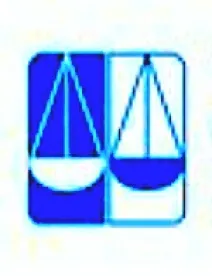Indiana to Implement New Procedures for Offering Voter Registrationto Public Assistance Recipients in the State
Indianapolis, Indiana – Today, U.S. District Judge Tanya Walton Pratt approved the settlement of a class action lawsuit brought against Indiana officials to bring the State into compliance with the National Voter Registration Act (“NVRA”). The settlement requires that Indiana implement specific measures to assure that thousands of low-income residents have the opportunity to register to vote at state public assistance offices, as mandated by the NVRA. The suit was brought by the Indiana State Conference of the NAACP on behalf of all state public assistance clients injured by the State’s violation of federal law. Plaintiff and the class are represented by attorneys from the Lawyers' Committee for Civil Rights Under Law, Project Vote, Demos, the Chicago law firm of Miner, Barnhill & Galland, the NAACP, and the ACLU of Indiana.
The NVRA requires that state public assistance agencies offer voter registration to their clients when clients apply for benefits, and when they recertify or submit a change of address. The State already began implementation of the settlement prior to its approval by Judge Pratt, and the number of persons submitting registration applications through state public assistance offices in recent months has increased substantially. Monthly average registration applications are now approximately 4,800, compared to only about 100 prior to the filing of the lawsuit in July 2009.
“We are pleased that Indiana has agreed to resolve this litigation through settlement,” said Barbara Bolling, President of the Indiana NAACP. “This is an important step forward to ensuring that all Indiana residents have the opportunity to register to vote and participate in elections in our State.”
The settlement sets forth the procedures that Indiana must follow for distributing voter registration applications to public assistance clients, both in its in-person transactions with these clients and in those transactions that occur by mail, over the telephone, and through the internet. The settlement also institutes a variety of measures aimed at promoting and ensuring compliance, including training, data collection, and monitoring.
“We look forward to working with Indiana officials as they implement the settlement agreement,” said Robert Kengle, co-director of the Lawyers’ Committee’s Voting Rights Project. “Thousands of Indiana’s citizens who have been traditionally disenfranchised now will have the opportunity to register to vote, as Congress envisioned when it passed the NVRA in 1993.”
“This agreement was a long time coming, and represents an important victory for the voting rights of Indiana’s low-income residents,” said Nicole Zeitler, director of the Public Agency Voter Registration Program at Project Vote. “Public assistance agencies are a vital component of the voter registration system, and reach citizens who are less likely to register through other means.”
When the NVRA first was implemented in Indiana, about 3,500 persons, on average, were submitting voter registration applications each month at public assistance offices. However, by 2007-2008 (the last reporting period prior to this suit being filed in July 2009), the number of persons submitting registration applications at public assistance offices had dropped precipitously, to an average of only about 100 a month. This decrease occurred despite a large increase in the number of public assistance clients in the State.
“Indiana’s example underscores that many states throughout the country are liable to being sued because of their failure to properly implement voter registration at state public assistance offices, as required by the NVRA,” said Brenda Wright, Director of the Democracy Program at Demos. “We stand ready to initiate litigation in many additional states that have not fully complied with the NVRA’s requirements for assistance.”
In the past several years, lawsuits filed by the same voting rights groups have forced other states that had been disregarding the NVRA to comply, with dramatic results. For example, applications from Missouri public assistance agencies skyrocketed, from fewer than 8,000 a year to over 130,000 a year, following settlement of a suit in that state in 2009. Almost 290,000 low-income Ohioans have applied to register since a similar case was settled there at the end of 2009. Another case recently was settled in New Mexico, and cases are pending in Georgia and Louisiana.
For Additional Information:
- Kim Hayes, Lawyers' Committee, 202.662.8318
- Nicole Zeitler, Project Vote, 202.271.5101
- Tim Rusch, Demos, 212.389.1407
- Erika Laws, NAACP, 202.463.2940, ext. 1021




 />i
/>i
